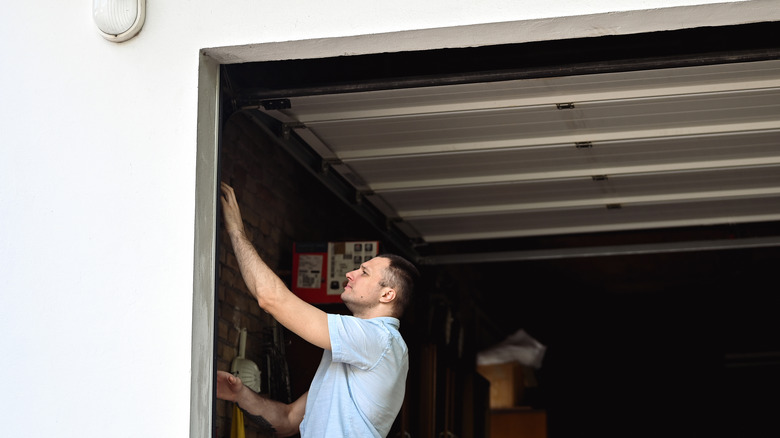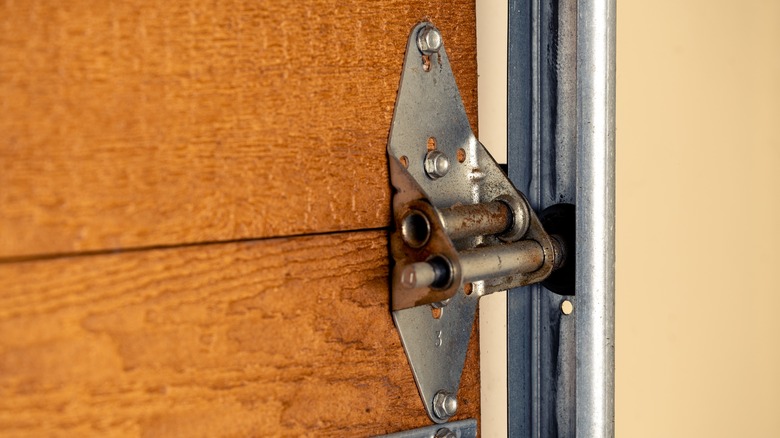The Best Way To Lubricate A Noisy Garage Door (And How Often You Need To)
They go up, they go down ... and for the most part we just ignore them. Until they get noisy.
Yes, we're talking about garage doors. While the excessive volume of your garage door could just be the result of a noisy overhead garage door opener, if the door itself is the problem, it's probably being caused by poor lubrication. After all, think of how large and heavy a garage door is: It's no wonder it rattles and groans if its lubrication has worn out (though a sticky door is just one of many common garage door problems). The good news is that applying lubricants is not hard or complicated to do, and well within the wheelhouse of the average homeowner.
Before you get busy applying the slippery stuff, take a few minutes to prepare the door for lubrication. First up, a bit of cleaning. It's a good idea to wear gloves as you do this, it will not only keep your hands cleaner but will prevent cuts and scratches as well. You will also need a step ladder for this task unless you play professional basketball. Use a cloth to wipe down the springs and tracks and rollers. The tracks especially will collect a lot of crud and corruption, and might even necessitate a vacuum. Wipe down the hinges, as well — and while you are at it, check to see that their screws are tight and secure.
Get some WD-40 and lubricate each part of the garage door in this order
The general recommendation is to use a silicone-based spray lubricant (think: WD-40) on your garage doors: It is a long-lasting water-resistant product. Start by spraying the hinges that join the door panels together. Get the spray onto the hinge pins. Next up are the rollers that move up and down in the tracks. Spray them, being careful to get the lubricant into the bearings. Avoid getting the lubricant onto the tracks as it will attract dirt and dust. Spray the springs next, applying it to the whole length of the springs. If you see the lubricant dripping from the springs, wipe it off with a cloth. That's true wherever you spray the silicone lubricant, by the way: Wipe off the excess and don't overlubricate. When you have applied it to all the parts, open and close the door several times to spread it around.
A good schedule for keeping your garage doors clean and lubricated is twice a year, unless you live where they will be exposed to a lot of grit and dirt, in which case four times a year would be better. Don't wait until the door starts making noise to apply lubrication, as regular maintenance will increase the life of your door considerably.
Now, what if you lubricate your garage door and it is still noisier than it should be? For example, a clicking noise on the opener? At that point, the problems aren't related to lubrication, and it might be time to call a garage door specialist.

